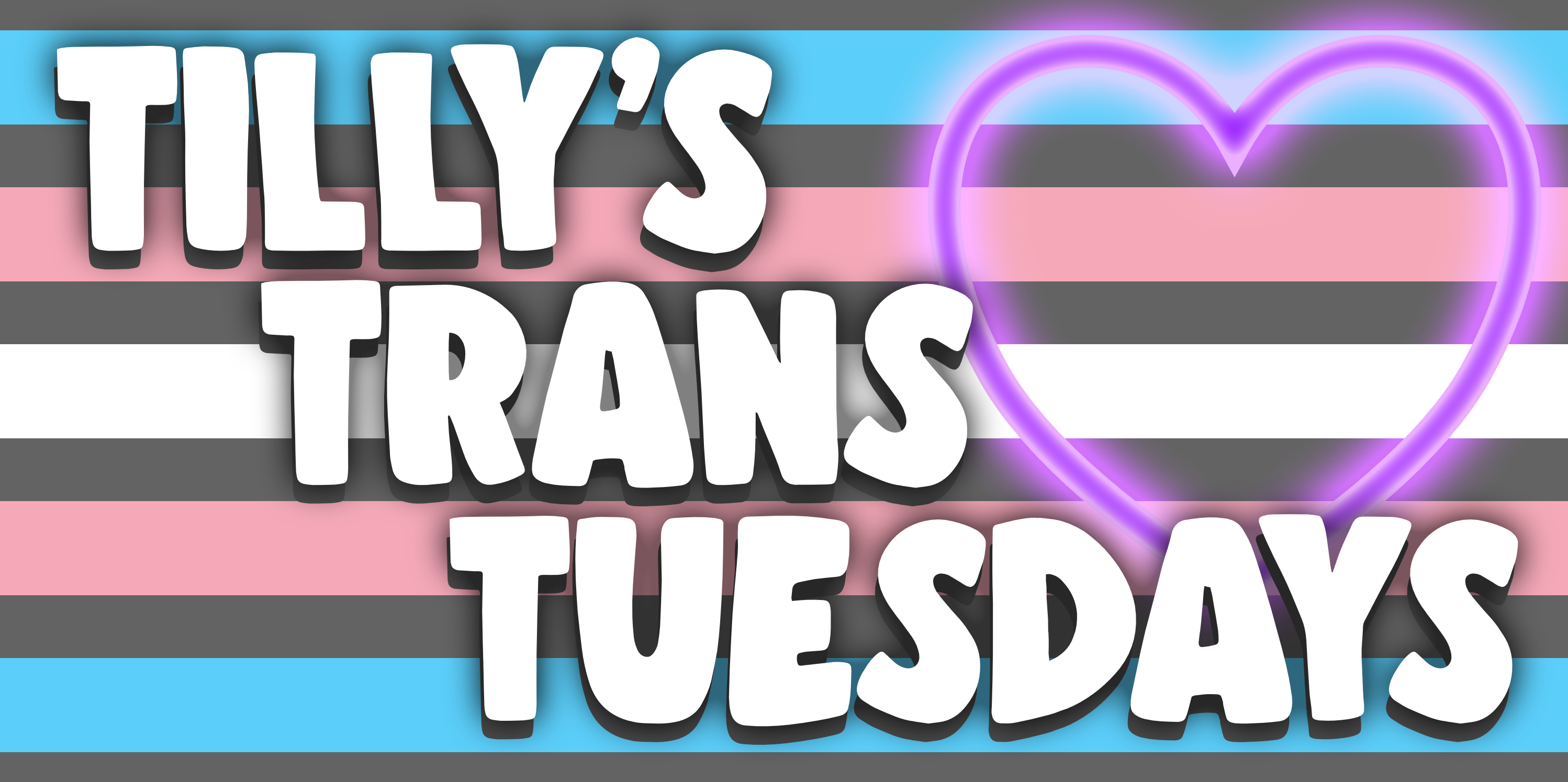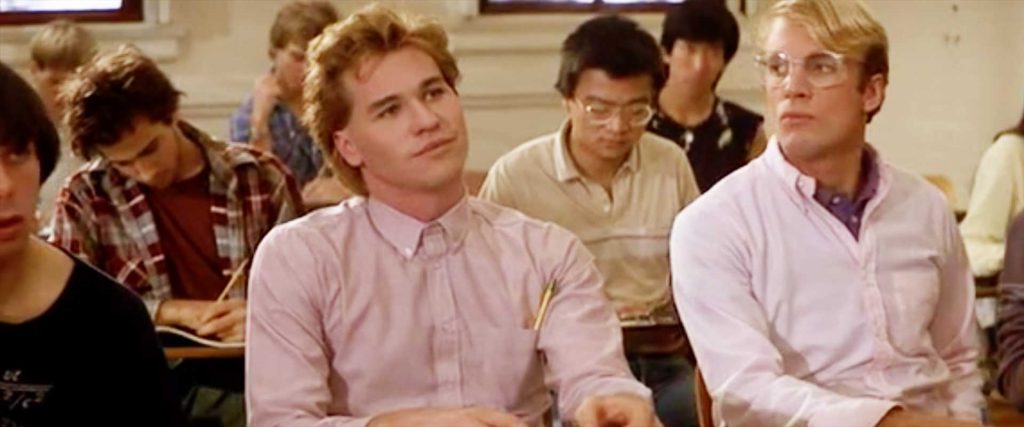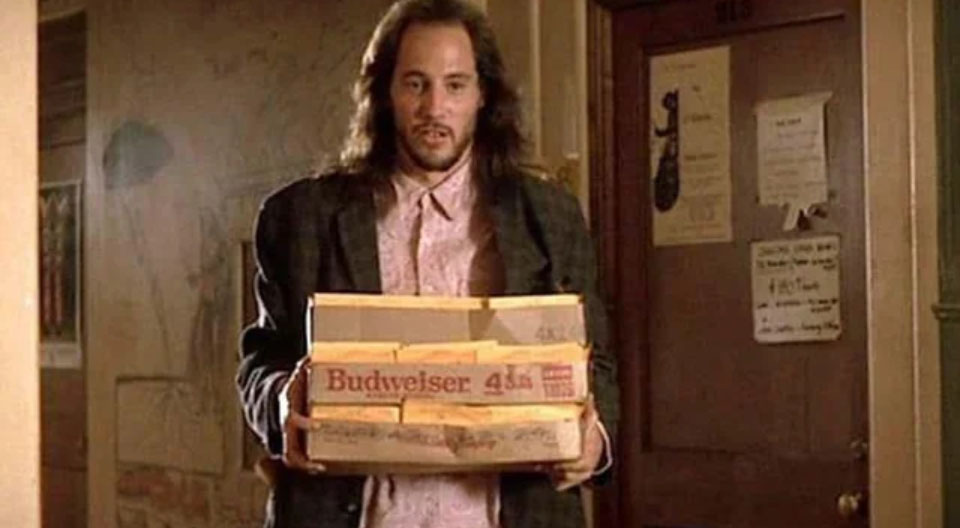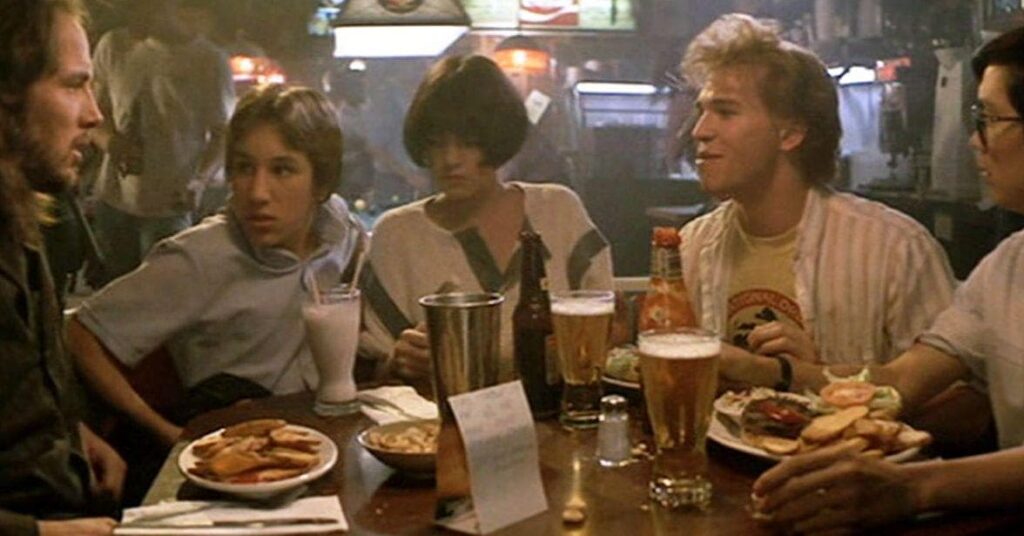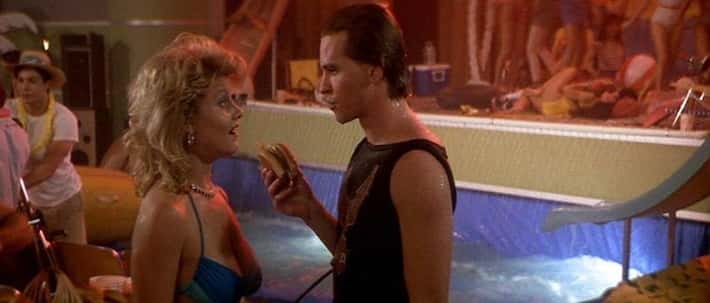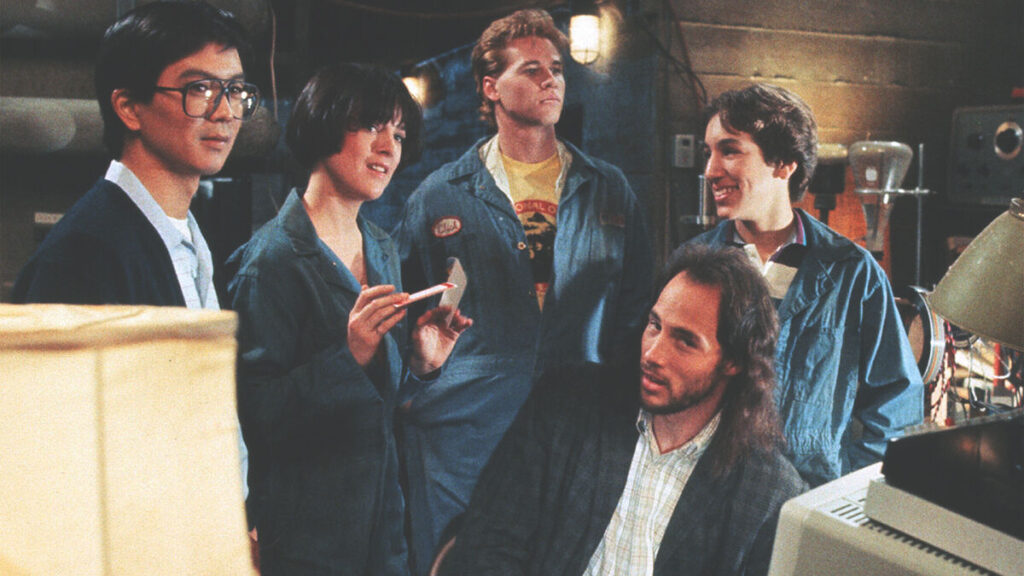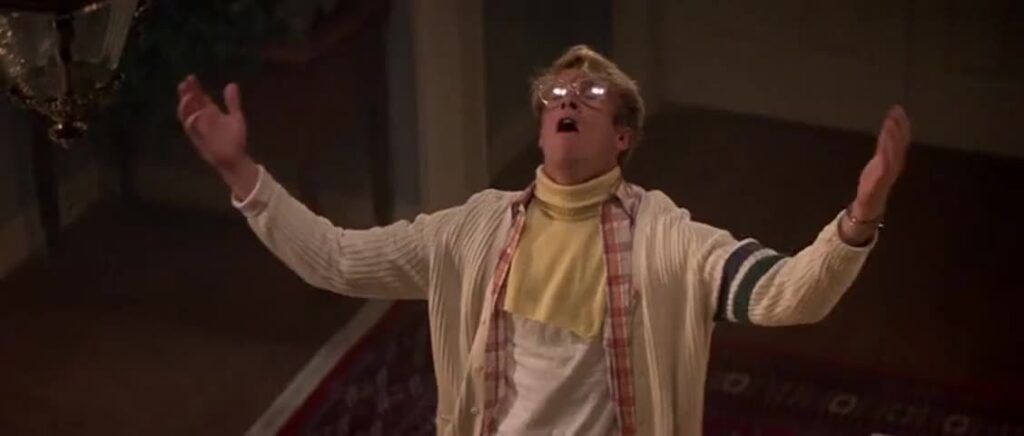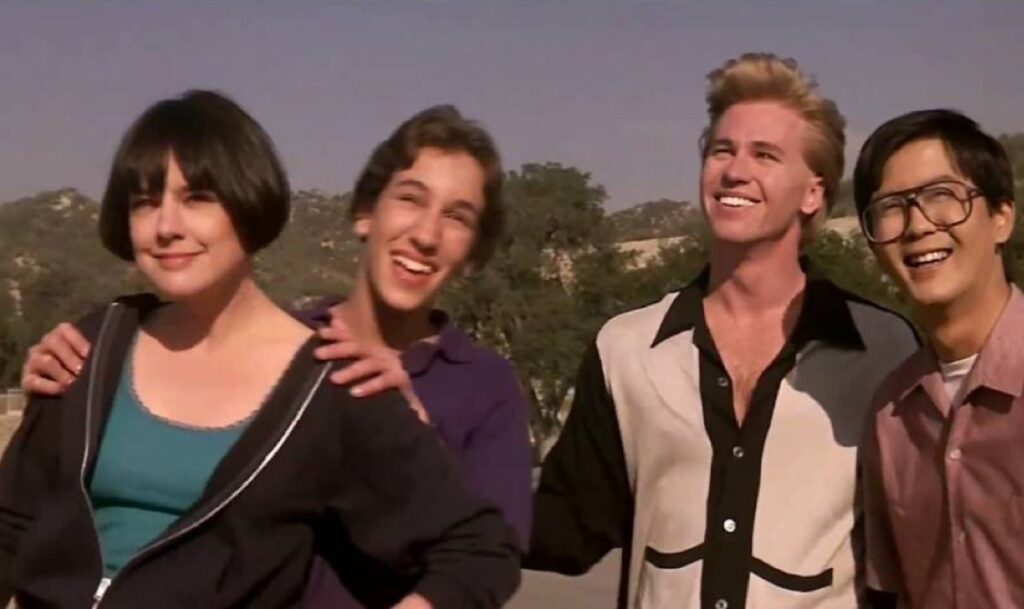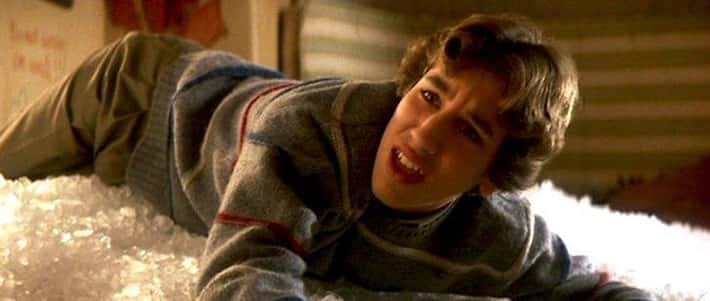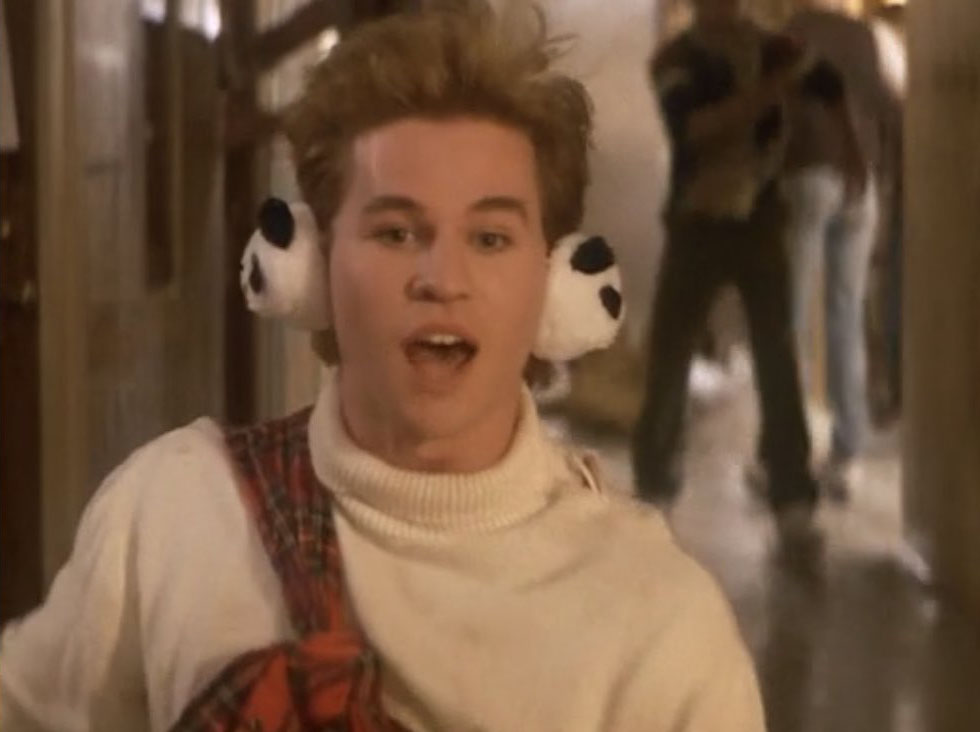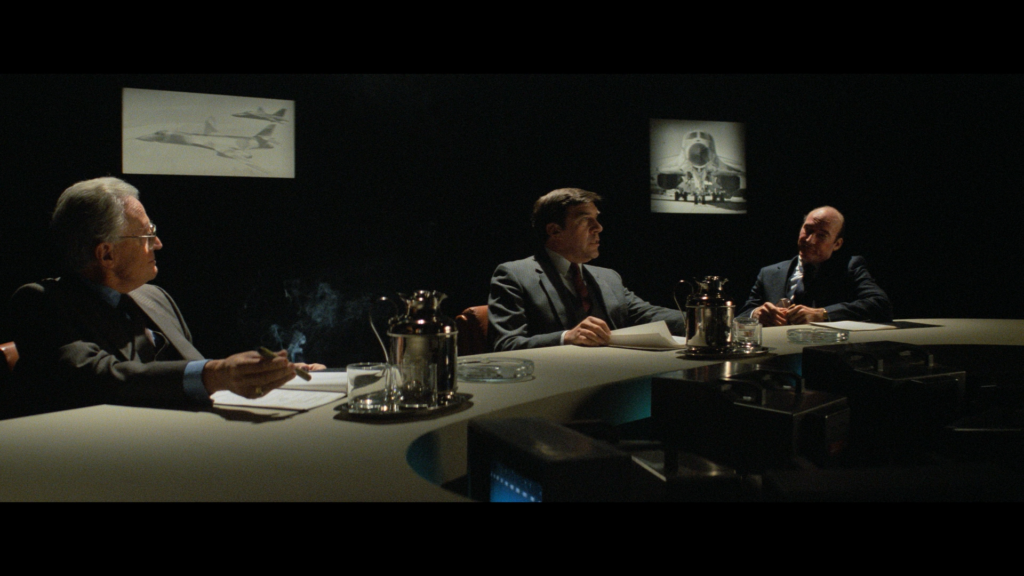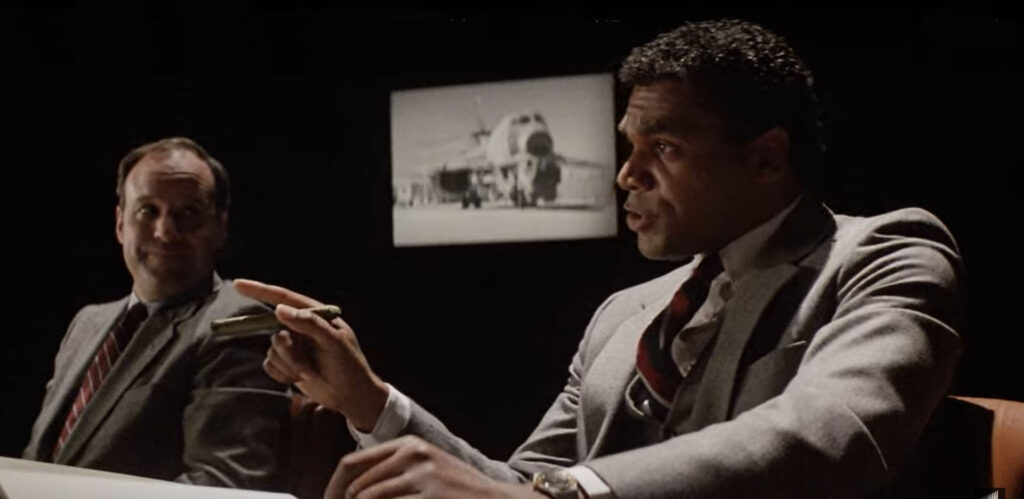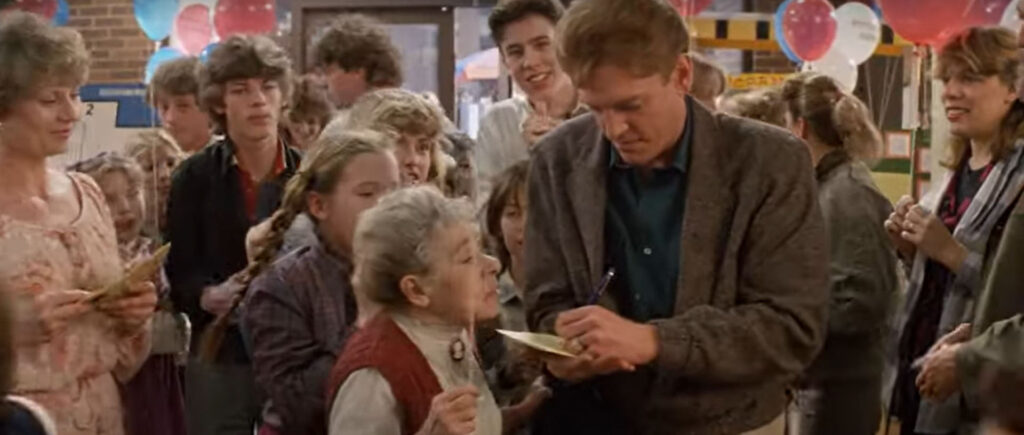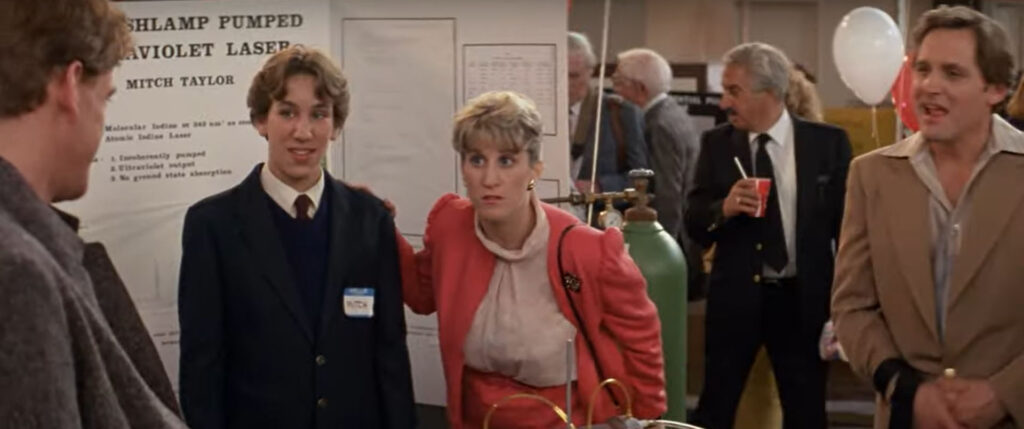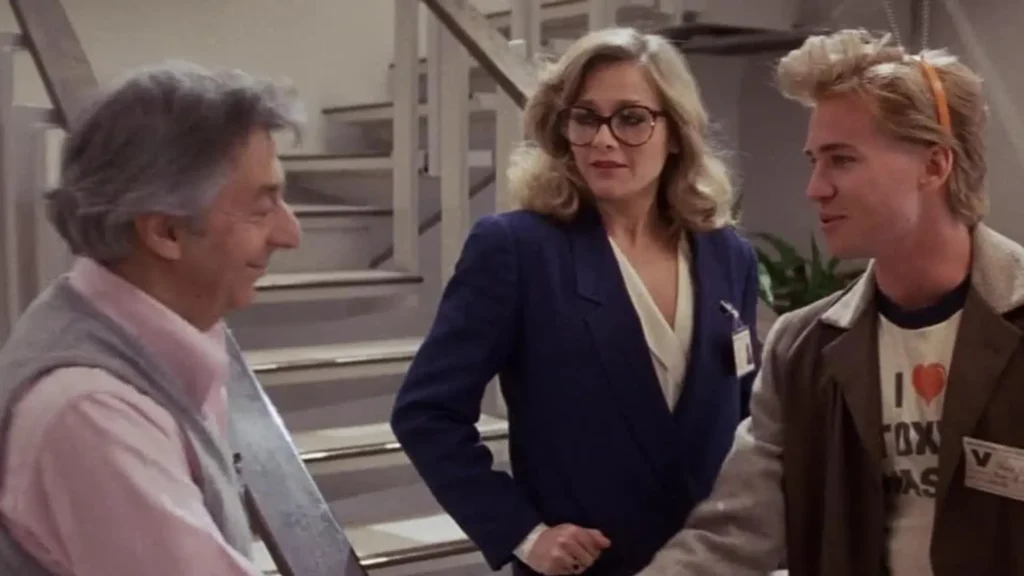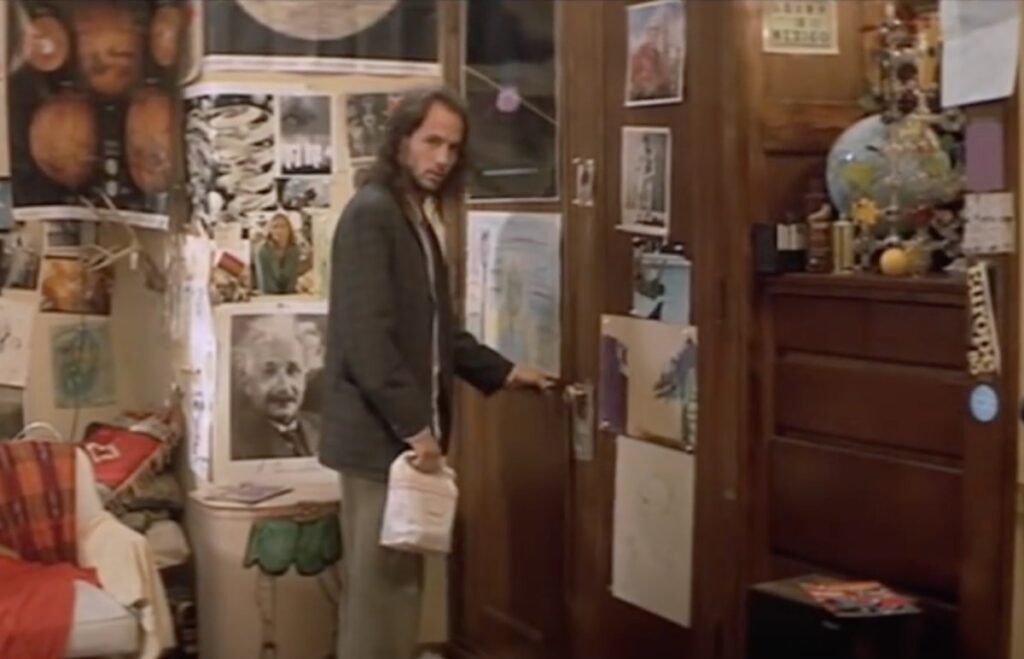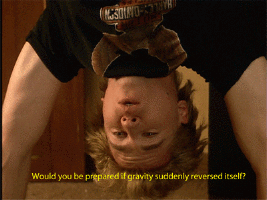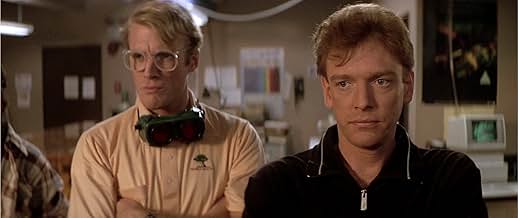Welcome to #TransTuesday! This week we’re going to discuss the Quantum Leap episode LET THEM PLAY which aired on February 6 2023, and we’ll be talking about it with the writer and director of the episode, Shakina! If you haven’t seen it yet, go watch it right now!
This is the first Trans Tuesday I’ve done as a podcast first, and then converted that to text/transcript. You’ll hear me, my wife/show co-host Susan, and Shakina. We had a really fabulous discussion, so I’m gonna stop delaying and we’re just gonna dive right in.
Tilly: Hi! I’m. Tilly Bridges, your host and I’m joined by my writing partner, my best friend, my wife, our token cis representation, the Al Calavicci to my Sam Beckett, Susan Bridges.
Susan: I am the Al.
Tilly: Definitely. Our guest this week is Shakina, a performer, director, writer, producer, and social activist. She’s most known for her work as Lola on the Hulu Comedy Series DIFFICULT PEOPLE and made television history on NBC’s CONNECTING as the first transgender person to play a series regular on a network comedy. As the founding artistic director of Musical Theatre Factory, she supported the development of over 100 new musicals, including her own autobiographical rock musical, MANIFEST PUSSY. She’s quite obviously also a writer on the Quantum Leap reboot writing, directing, and acting in last week’s LET THEM PLAY episode about trans youth. Welcome, and thank you so much for being here!
Shakina: I’m so happy to be here with both of you. This is so fun.
Till: So at the beginning we like to sort of help the audience get to know the guest when they come on. So I would like to ask you what’s been the most surprising thing for you about transitioning.
Shakina: Wow! Well, the most surprising thing for me about transitioning would probably be how comprehensive it is. You know I have this like spiritual belief that when you like, put something up on the altar for change, you have to kind of give your consent for the totality of all things to evolve. And so you might think of your transition as a physical thing, or as a gender thing, or as a fashion thing; but ultimately, once you lean into it, at least in my experience, it just becomes really comprehensive, and you find all these different ways to extend yourself in new and strange and true colors. And so that’s the most surprising thing for me, that i’m still discovering how transitions never end.
Tilly Bridges: Yeah, it’s like they always keep going.That was something I never expected either. How much I feel- how much more like myself I feel internally, not just all the external changes, but it’s- I don’t know. I feel like a different person almost, but not entirely because I was always in there. I don’t know.
Shakina: I think you free up a lot of brain space, you know.
Tilly Bridges: Yes! I used to not want to experience new places, or like new foods… things I hadn’t had before. I didn’t know why, but I’ve discovered since transitioning that it was because I didn’t have the mental energy for it, and once I transitioned and got further into my transition, I was really surprised at how much I started craving those things. I used to hate going to events with a bunch of people I didn’t know, and now I want to. I want to meet these people, and I want to try all these new foods I’ve never had. And it’s- yeah, I never expected that either, that I would enrich my life and all those other ways. What’s one piece of advice that you would give to someone out there who’s just starting their transition, or maybe something you wish you knew ahead of time going in?
Shakina: You know, the funny thing about advice with transitioning is that, like you know, everyone has to take their own path on their own time. I could say from my experience that everything I’ve done to further the fullest expression of myself, I wish that I had done sooner. I want to say, Take your time, and there’s no rush, and you know, like allow it to unfold in a process that feels, you know, gentle and graceful. I also want to say don’t second guess yourself if you now in your heart what you want and need to do, go for it.
Tilly: Yeah, I think that’s something in a lot of newly out trans people I see, is that they feel there’s one certain way they have to transition or whatever, and that’s not the case for any of us. We all have to figure out what’s right for us, and that’s the most important thing. And whether you figure that out right away or you take your time, it’s just important that you find the thing that makes you true to who you really are.
Shakina: Yeah, and don’t worry about it being linear because it’s never going to be linear.
Tilly: It may change along the way, and that’s okay. Okay, so first, before we dive in, let me say that Susan and I are both huge Quantum Leap fans and have been since the original was on way back when, when I even have a King Thunder band t-shirt, which is a very deep cut for all the Leapers out there. But the show had its hooks in me like every week, and it was one of the most compassionate and progressive shows that was on the air. And there was also something compelling that I did not at all understand, every time there was an episode where Sam leaped into a woman and his soul was the same, but everyone now saw him as a woman, and all the complicated feelings that gave me. So I was so excited, both as a fan and as a writer, that the show was getting a modern continuation. Susan and I really wanted to get staffed on it so bad, but I was mostly really hoping that the show was going to have trans people on the writing staff, even if it wasn’t me. Because nobody in this world better knows what it’s like to be in a body that’s not yours, “facing a mirror image that’s not your own.” So how did the quantum leap gig come about?
Shakina: Well, basically, just everything you said, I said in my job interview about being trans, but I said to them I could pitch you a trans story, which I did (the same story that became episode 112) but I said you know more importantly, my perspective as a trans person gives me the insights to understand what it means to be in a body that’s not my own and seeing a reflection that’s not my own, just like you said, you know it’s so iconically trans. And for me, being a young kid watching that show, the original Quantum Leap, and – the same. Seeing this person, this actor, morph between all these different identities, and still be the same person… and watching them and seeing- seeing Sam for who Sam was in Sam’s truth, and then also seeing them go through all these different kind of incarnations, just spoke to my spirit, you know I just understood that. And and so when I did CONNECTING on NBC, during the pandemic, it was a show that was created by Martin Gero and Brendan Gall, and Martin ended up becoming the executive producer of the Quantum Leap sequel, and also showrunner. But wasn’t at first, he was just gonna be EP-ing. Martin and I are also developing a project for for me for NBC, and so one of the things we had talked about was like, well, you know, it takes a long time to get your own show off the ground and it would probably be wise to try and get some experience in a writers room. And then when Quantum Leap was announced, I just reached out and said, “hey, if I write a sample can you get it to the showrunners?” And he said, “yeah I can’t like, you know. promise you anything, but I can help you, you know, get your script into their hands.” Which is, if anyone knows anything, the hardest thing to do in Hollywood, you know. And so I like I didn’t even have a pilot sample, I had my own work that I was developing, but you can’t send out your developing work as a sample. You have to have a completely different thing. And so I just like wrote a sample as quick as I could. My friend Shadi Petosky, who’s another trans TV writer, she said, “just write something, you know, that will never get made.” And it just gave me all the freedom to just throw something onto the page with no pressure. And then I got an interview, and that’s how I got the job. I mean.And then the fact that I became the director of the episode that was like a very last minute- I mean we were in our first day of shooting when our director got pulled for Covid, so every step of the way just sort of like unfolded into the next thing. And then suddenly I was writing, directing and Guest starring in my own episode.
Tilly: That’s amazing. When I found out that you were on the staff, I got so excited because I knew that we were gonna be in for something really special, especially when Ian on the on the show, who’s non binary and played by the magnificent Mason Alexander Park had that line that said, “When I was 8 years old I realized that about half the world just blindly accepted as truth the construct of gender that is both artificial and profoundly limiting.” And I was like what the hell is happening! This is a network show, and you wrote that line. That’s so amazing.
Shakina: Yeah, in fact, we knew we wanted Mason to say something, or Ian the character to say something, in that moment and we hadn’t landed on it. And the script was already out for publication with the network, and Dean texted me and was like, “Can we say something here that’s like better than this?” And I was like what if we just said this, and I literally texted him that line, and that’s what made it in the script
Tilly: That’s so beautiful. And i’m so glad it was there. Because yeah, I mean, like, I love your episode a lot, and we’re going to talk about that in a minute. But the fact that you’re there for the whole season, and can contribute to the scripts in this other way makes it feel so much more ingrained, so much more part of the the show as a whole, you know. And I really like that. We need a lot more of that.
Susan: Yeah, I think at first we were like worried because we see the character and we’re like, nobody’s talking about this. So it’s like we just put one toe in the gender. And that’s all we’re going to do.
Tilly: That’s all you get with so many shows, and it’s really great that we got so much more.
Shakina: And well, i’m excited for you to see where the character of Ian goes too, because I think you know, when you are introducing any new TV show, you sort of have to seed your primary characters, and then, like layer in your supporting cast. And even in series regulars, you kind of have to stack it and introduce them. And and so there’s a sort of like patience game to like getting this trans character the TV time and the story time that they deserve. And I think you know, starting from episode 12 on, I think we’re gonna see more of Ian being involved, which I think is really great.
Tilly: That’s so great. Now I’m extra excited.
Susan: Yeah, Ian’s a great character. I already love Ian.
Shakina: Yeah, same.
Tilly: Episodes always go through changes from outline to script, with studio and network notes, and every other step that comes between the initial idea and the final episode. How close is what we saw to where the concept initially started?
Shakina: Well, I mean the concept is very, very close to where it originally started, in terms of this episode. You know there are certain things that changed, like I originally pitched a soccer episode, and it became a basketball episode, which I’m actually very happy about, and was way more producible. But you know I think at the beginning there was some- you know, I was really riffing off of these adolescent gender swap team sports movies, which is a very particular but pure genre, you know, from JUST ONE OF THE GUYS to LADY BUGS, to SHE’S THE MAN, it’s really a tonally specific style of teen movie that I wanted to capture in essence in this episode. And so, because there’s in all of those that I reference, there’s a sort of like PARET TRAP-y, gender swappy thing going on, I was playing with whether or not Ben should leap into our trans kid, or the coach, or the dad should be someone different. So that kind of exact angle of how the leap would land took a little bit of time before we landed on Coach Dad.Which was funny, because Coach Dad was like the original pitch, and then it got split up and brought back together. And that kind of stuff just always happens in TV writing.
Tilly: Yeah.
Shakina: But anyway, the idea of then leaping into Coach Dad with trans daughter on the team,
and this sort of series of events that I knew had to happen in the episode, which was like – the car, wash the support group, you know, Ian’s confessional about attempting suicide… and then the conversation between the the girl whose mom is sort of trans-antagonistic, but she feels conflicted and unsure, and then she finally gets to have a real conversation with a trans person and like come to her own understanding. All these different points of view, the veterans’ conversation about the you know, the trans military ban… like I had a long checklist of things that I needed to fit into this episode, and it was just figuring out how to weave them together with the story beats. To make sure we had, you know, like the entertainment that you expect from a Quantum Leap of 10 pm on Monday night. And you know the heart of trans liberation that we want to share with the world, with enough information to empower our audiences to be critical thinkers and actors, without having to weigh them down with a Ted Talk. And that was like the big challenge of the episode.
Tilly: Yeah, actually, there was a thing I was gonna mention. I’m gonna jump ahead in my notes a little bit here, just to tie into what you said. But when you said that you had so many things that you wanted to weave in… I made a note here, and I- I want to read this out because I think it’s important, especially for the cis people listening who may not know. These are the things that I specifically noticed in the episode that are directly from existing as trans in this world. Okay, so there are cis people not wanting a “culture war” when all we want is equality, a trans girl not allowed to change in the girls’ locker room, Gia inspiring Ian in the way that just being out and showing our joy inspires other trans people – but that exposure can also make us a target, invasive medical questions from cis people, how cis people not saying anything or standing up for us makes them complicit in our oppression, the importance of trans community and found family, the crushing depression of kids forced to pretend to be someone they’re not, the world telling you people like you aren’t worthy, the increased rates of homelessness and violence for trans people, a white cis lady who’s more concerned about property damage than bigotry, police misgendering a trans body, how we have to fight everyone (and our own reflections) just to be who we know we are, cis people who think it’s not appropriate for a trans girl to play on a girls’ team but feel it’s totally fine to put a trans kid through ostracism and bigotry, not seeing your kid’s transness as a burden, cis fear not being trans people’s responsibility, and cis people keep us safe by always having our back. It feels like it took me 45 minutes just to list all of those, but you worked all of them into a single episode, and that’s astonishing to me. And I’m so so glad you did because, what I think a lot of cis people don’t realize, is that we’re dealing with all of that, all at the same time, every single day. So that feels like a miracle that you got so much of that in there.
Shakina: Well, Tilly, i’m so honored that you hold that list together, because even hearing it is sort of mind blowing that we actually accomplished it. And it’s so great that all of that stuff got communicated. And I want to add that and, I’m sorry my mind was blown as you were reading through the list and I was so excited that you gathered all this from it, but I also add that the particular intersection of oppression with trans Latinadad and the way that, like Gia’s targeted harassment was also racist.
Tilly: Yes.
Shakina: And that is another another element that, you know, we were really blessed to be able to focus on in the episode. Because, I think I mentioned this in other conversations around the episode, but it’s truly based off not only my life experiences, but two young trans Latina people who did not make it out alive. You know, and my friend Gia who the character is inspired by, took her own life, and my friend Tony “Lady Justice” Colin was another queer youth organizer in high school, just one year younger than me, and like one district away, making a radical change in their school in the nineties, when we were just like fighting for the right to exist. And unfortunately, Tony took their own life too, shortly after high school. And so I grew up with this kind of sense of survivors responsibility? You know of, like I have to tell my story, and I have to tell their stories, and I have to say their names. And then that was in 19- I mean the years that I went through all this stuff was like in the late nineties, ‘98 was when I dropped out of High School, and ‘99 was when Tony was starting, you know, protest at their high school. And this episode takes place in 2012, and here we are literally 25 years later, from my high school experience in 2023, still going through this sort of, like, inflammatory rhetoric attack on trans people. But I will say I had the most wonderful experience on Friday this past week, when I went I went back to Verdugo Hills High School, where we shot the episode with the cast members, the guest star cast members who all play on the basketball team, including Josielyn Aguilera, who plays Gia. And we showed the episode for the students at the school where we shot the episode, and the girls’ basketball team was there, and the GSA was there, and the Intersectional Feminist Club was there, and it was just such a special sharing and celebration and a real testament that, like, we do move forward and we do make progress, even if it feels like it takes forever and literal generations. It does happen. And one of the kids DM’d me later, and was like, “you know I go to Verdugo, and you have no idea how many sit-ins and protests we had to do to get here.” And I was like… oh, I know!
TIlly & Susan: [laughter]
Shakina: I know because I did them too, you know, and I wish that kids today didn’t have to sit in and protest and literally fight for their lives to go to high school. I can’t wait for the day when kids can just go to high school and not have to have that be part of their adolescent experience. But I’m so glad that this episode exists as a beacon for those who are going through it, and my biggest hope is that just every trans kid, and every parent of a trans kid, and every teacher of a trans kid, just get to see this episode. So they’re like, oh, “I’m valid,” you know, “I’m not alone. This story is a story that is well-known enough to be archetypal, so I’ll get through it.” You know what I mean?
Tilly: yeah.
Shakina: And that’s what I hope the episode does.
Tilly Bridges: Yeah, and you know you i’m glad that you mentioned that because one of the things- I mean, it is hard right now to be a trans person in this country, but- one of the things that gives me hope is the the upcoming generation, and how much more accepting of differences, and how much more inclusive they all seem to be. I feel like there’s a real cultural shift happening with them, and that gives me so much hope for the future. And yeah, I want to give them everything that we possibly can, and episodes like this definitely help. But one of the things that I wanted to to ask you about specifically as a trans writer… some of the boos and shouts from the crowd during the games, and racist and transphobic boys that stopped by during the car wash – it was really tough to hear. But of course that’s the reality trans people have to deal with. We recently worked on a script with a transphobic character, and it was really difficult for me to have to write those lines that I knew were used to hurt us. So, how was that for you? Did you get through it okay?
Shakina: Yeah, you know it’s interesting. When I first set up to write the episode, I said to the writer’s room, “I have 2 objectives here, and that is to counter the tropes of trauma and singularity with trans joy and trans community.” But of course it’s a one hour drama. You gotta go through the darkness to get to the light, and so there was a careful balance. I mean,. I had GLAAD working on this with me from the very beginning. I reached out to them and asked to have a rep to like consult with me on the script and some of these choices. Unfortunately, I had to go through a process where I was asked by the creative leadership to amp up the trauma, and I was like, “I don’t think that’s the right way to go, I don’t think that’s what we want to do.” We knew we wanted Addison to have some sort of complicated relationship to the subject matter, and we wanted to mine that. But they really wanted me to kind of like swing full TERF with her? So I wrote an outline that was like, really kind of objectionable to me as a trans writer, but like giving the cis what they want, you know? And then, of course, GLAAD was like “No, no, no, no, no!” And then even the execs were like, “Really, we don’t think this is the right way,” and then eventually people were like, “Wow, Shakina, you were right to begin with.” And then we had to go back. So this episode took like months longer than any other episode, because of all the ways we worked intentionally to do it right. But even working intentionally to do it right meant mining me for my trauma, which was in a way, I feel, exploitative. And I hope we can learn from that and make sure that future underrepresented writers who step into a room to take on the mantle of telling the story of their community, and bringing their life experience to that, don’t have to go through that kind of, you know.. second guessing, I guess to say? It’s like, let the trans person tell you what they know is best.
Tilly: Exactly.
Shakina: We have a southeast Asian writer on the show, and episode 13 is a southeast Asian episode, and it’s like, “let the southeast Asian writer tell you what’s best for the southeast Asian episode,” you know what I mean? Like, that’s why when we say “representation matters” it’s not just what’s on screen, it’s not just who’s in the writers room, it’s literally like “who are you listening to?”
Tilly: Absolutely, yeah.
Shakina: Who are they giving authority to? And that’s something I hope we can continue to grow with.
Tilly: Yeah, we’ve encountered that a little bit too in our career where people want input and feedback and consulting on trans things, but that they don’t always want to listen to what we have to say if it’s not what they already were wanting to hear.
Shakina: Right, exactly.
Tilly: So I definitely get that. One of the most powerful moments for me in this episode was the parents in the support group, and that voice over with the shots of those trans kids just looking so human and so vulnerable. It filled my heart, and then it also broke it a little, because I didn’t get that. And so many trans kids don’t either. But it’s what all of us deserve.
Shakina: Yeah.
Tilly: And it’s so important to see that kind of parental love and acceptance on screen. Were those specific shots of the trans kids sort of envisioned from the start? Is that how you wanted it to go?
Shakina: Yeah, I called them living portraits…
Tilly: Yes!
Shakina: …and I just knew that I wanted to hear the parents like grappling with, not having a trans kid, but grappling with the external pressures that they face over just trying to be a good parent? And at the same time, just look into the hearts and souls of these kids, and see them as kids. And you know, the dancing and slow motion came up because – the scene was interesting – is that I didn’t have – like, I knew the ingredients of the scene up ‘til the point that it was written and we were on set. But I just didn’t quite understand how it was going to work filmically to have the support group sitting in one little circle, and the kids hanging out in another circle. But the truth of how these meetings happen is the kids hang out and the parents commiserate, you know? And I wanted to really like get the joy of these kids, the stress of these parents, and the way that Gia was sort of caught in the middle. And then it was, you know we were on set, and we were like having them, you know, dance and hang out. And then we got the idea like let’s shoot some of this in slow motion, and then it just sort of unfolded from there. But yeah, that’s my favorite scene. I cry every time I watch it.
Tilly: Yeah, mine, too. I’m like the whole episode is gonna live in my heart forever. But that scene? I can see it. I can feel it. It’s gonna be with me forever. It meant so much to me.
Shakina: I’m so glad.
Susan: Although I want to say that I kind of hate, like, that you have to show people that trans kids are human beings.
Tilly: Right?
Susan: Really, do you really need a reminder that humans are human?
Tilly: Sadly, some people do.
Susan: Ugh.
Shakina: But you do.
Susan: You do! And I hate it.
Shakina: I mean, you know the episode has been like review at bombed at IMDB.
Tilly: Yeah:
Shakina: I ran a blockchain on all the twitter terfs a long time ago. So thankfully, I’ve been spared online. But yeah, you know that even just the few things that I’ve seen that have been transphobic or trans antagonistic, are just literally spewing the same hatred that the whole episode tries to counter, you know? And it’s like… we weren’t, we weren’t going to reach you anyway, Booboo! You know what I mean? You were never going to come on over, so Red Rover Red Rover, stay in your corner.
Tilly & Susan: [laughter]
Tilly: Yeah. The other really big thing for me in this episode was the delineation between allies and accomplices, with Ian explaining it in the episode as “Allies sit in the bleachers and wave a flag, and accomplices have skin in the game.” And then this gets demonstrated when all the cis girls on the basketball team support Gia and Ben even says they won’t play if she can’t play. They put their own goals and desires on the line in the name of trans equality, and that’s being an accomplice. And I thought that was such a beautiful way to illustrate it.
Shakina: Thank you. You know there’s two things about the accomplices conversation in this episode that I think are so important. One is being able to admit when you didn’t show up and learn from that, and like, not have it be the hardest, most brutal thing in the world to acknowledge that you might have not been as good of an ally or accomplice as you could have been in the past.
Tilly: Yeah.
Shakina: Sorry, forgive yourself. Stand up straight and move on. You know what I mean? We are here today, and we need your help, and you can’t just like sit in the corner and worry that, you know, you weren’t helpful enough. You gotta get up and get helpful. And so that’s that’s the first thing with Addison’s big monologue about the trans military ban, and like not knowing how to do the right thing back then. So then the other is how easy it is to do the right thing!
Tilly: Right?!
Shakina: That’s the other thing. It’s like there are so many ways that you can do a little thing to make life better for the people in your vicinity. And that’s true for trans liberation but that’s also true just in general, like to be a good person. So those are the two aspects of accomplice-ship that I really wanted to highlight in the episode.
Tilly Bridges: Yeah. Well, you you definitely did, and it’s something that I mention all the time for both trans people and cis people is that it’s never too late. It’s never too late to transition, but it’s never too late to stand up and do the right thing and support us.
Susan: And stop being a garbage goblin?
Tilly: And stop being a garbage goblin, yes.
Shakina: Yes! That’s right.
Tilly: Okay, so I’ve mentioned before how important representation like this is not just in letting us see ourselves as part of the stories that we love, but normalizing us to people who may not know any trans people.
Shakina: Right.
Tilly: And I keep going back to the same example, because it’s just such a good one, but there’s real evidence that shows like MODERN FAMILY moved the needle on marriage equality in this country because of the representation of a loving, gay couple on the show. And episodes like LET THEM PLAY can do the same thing for trans people, and we need that now maybe more than ever. And so I’m so so glad that you wrote this, and don’t underestimate how much it means to all of us for so many reasons. I’m so thankful as a trans woman, and I’m in awe as a writer, because you did the thing, and it’s so good.! We need that thing, and you did it!
Shakina: Well thank you so much, Tilly. I so appreciate it, and it was like, really, you know, an honor. And like I said, a responsibility. And you know one thing I also want to say is there was a trans Latina writer in Hollywood, Camila Concepción, who was on GENTEFIED, and really a young (she’s in her late twenties) promising career, and she also took her own life just like a year and a half ago. And while I am so glad that I got to bring this episode to life and tell the story of me and my friends, I want to say in terms of, you know this landmark moment for trans Latina representation, Camila should have written this episode. And it is as much in her honor as it is in my friends Gia and Tony “Lady Justice” Colin. And you know we just have to keep doing this work so that we can see our community live and thrive, and create and contribute to culture. And I’m just happy to be a link in the chain.
Tilly Bridges: Yeah. When you were a kid, did you have any trans characters in media that you glommed on to or wanted to be like, or saw yourself in? Or did you have to find it through other characters that were just maybe not quite stereotypically their gender? Because I had to do a lot of the latter. I never saw a trans character as a kid, and I think that messed me up a bit.
Shakina: Well, I yeah. I mean, I think for better or worse, I saw ROCKY HORROR when I was in fifth grade, and it changed my life. And it saved my life, and also troubled my life in a lot of ways, because my early trans representation were all pretty- you know, like, I want to say “sexually mischievous” and kind of like, you know, unbridled and extroverted in a way that you know, for a young kid with no other examples… it was like either people dying of AIDS, or like a murderous, sexually violating alien transsexual. You know what I mean?
Tilly: Yep!
Shakina: It was sort of like, well, okay, these are my options here. So yeah, I mean, I think that was really- I think that’s why it matters so much to me now to just imagine more trans futures and trans possibilities for the screen, because it creates possibilities for the people out in the world to see themselves and imagine what they can do and who they can be.
TIlly: Yeah.
Shakina: Yeah, you know, but also in terms of the fictional stuff, you know, it was movies that taught me how to imagine, and shows that taught me how to imagine that really saved my life. You know whether it was like NEVERENDING STORY and LABYRINTH, and those kind of like youthful movies about the ability to become the world you see for yourself. Or you know, things like the original Quantum Leap that was like “this is what it means to walk a mile in another person’s shoes.” And wow! Look at that man becoming a woman and no one batting an eye. That’s great, you know?
Tilly Bridges: Yeah. Yeah, I think the first time I ever actually saw a trans person in anything was ACE VENTURA.
Shakina: Oof.
Tilly: And that’s a bad way for you to first see yourself on screen, right?
Shakina: It is not great, yeah.
Tilly: No, it’s not. So I’m glad that this episode is there because trans kids get to see themselves on screen, and they can see their story and their joy, and their struggles depicted as real and valid. And that they can be heroes too. You know I didn’t know I was trans when I was a kid, but if I’d had rep like this, in anything that I watched, even once, I might have been able to figure it out a lot sooner. So thank you for giving that to all the trans kids out there, so that they can have it better than we did.
Shakina: Thank you. Thanks, for- I mean, I appreciate that. But again. It’s like simply a duty, you know.
Tilly: Yeah, yeah, I kind of feel the same way. We’re working on a thing now where I’m getting, I guess we are getting the opportunity to kind of do that as well, and it feels like… it feels like such a responsibility because you want to get it right, and it’s so important. And you want to give back to those kids out there. And it’s just – yeah. So I’m glad that you’re out there doing it, too. And thank you so much for taking the time to drop in and talk with us today. I love this episode. I loved talking to you, and it’s been a real joy for me.
Shakina: It’s been a real joy, too. Thank you. Such a pleasure chatting with you both. Am I so glad you you love the episode, and and I appreciate that you’re amplifying it on the podcast
Tilly Bridges: And to anybody out there listening I just want to say, even if you’ve watched the episode already, please go watch it again. And then 6 more times after that. Bump those numbers so that we get more episodes like this, because we need this kind of representation in our media now, more than ever.
Shakina: Amen to that.
Tilly: Tilly Bridges, end transmission.
tillysbridges@gmail.com
